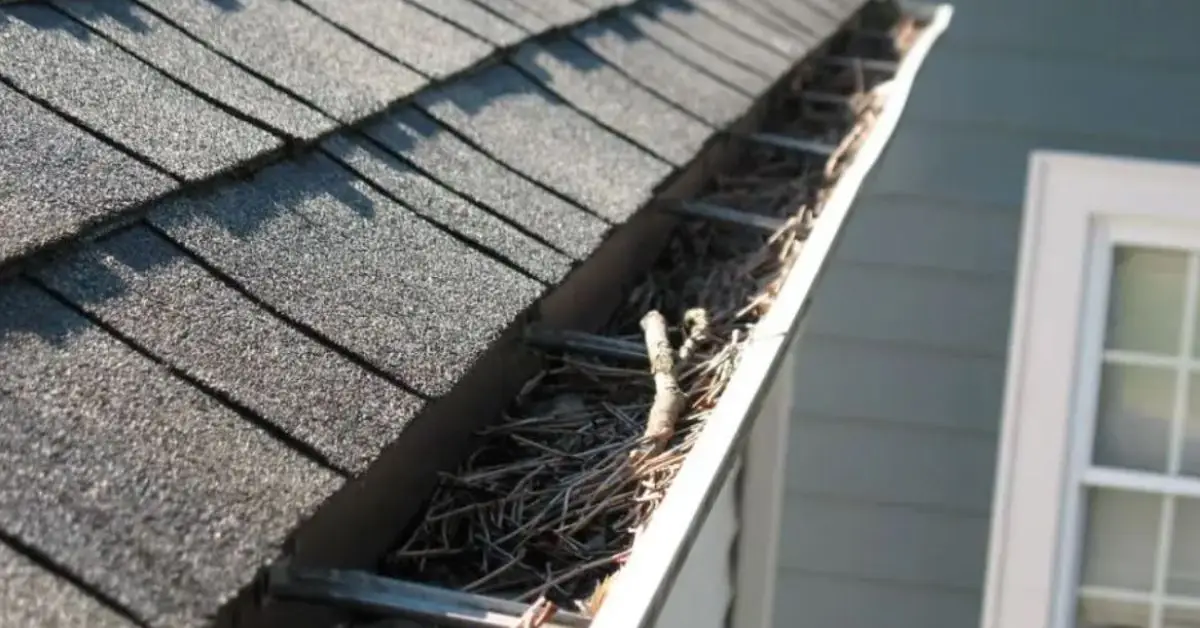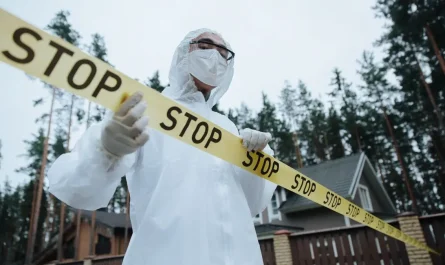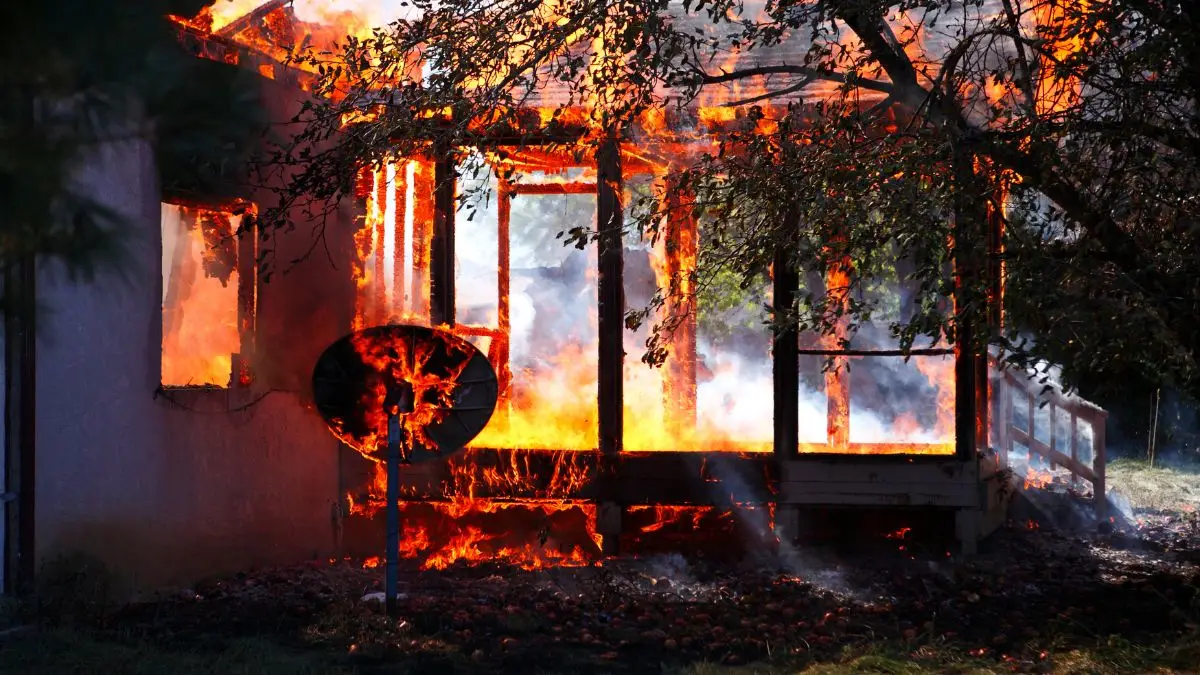Stop Doing These 17 Things They re Slowly Destroying Your House
I understand. Maintaining your house is probably not your favorite weekend activity because you have a lot on your plate. The problem is that most people don’t ruin their houses in a single, significant error. They accomplish this gradually over time by disregarding minor details that don’t seem important.
More times than I can remember, a small roof leak has resulted in repairs costing $10,000, or a clogged dryer vent almost caught fire. What’s the worst? With a little more awareness, almost all of it could have been prevented.
In this post, I’ll walk you through 17 home maintenance errors that could be subtly harming your house at the moment. No guilt trips, just straightforward, everyday information that I wish I had heard sooner. This list could potentially save you thousands of dollars if you own a home, particularly an older one.
Let’s begin with the most straightforward ones that you can resolve this weekend.
1. You re Forgetting to Change Your HVAC Filter
Don’t worry, I was also prone to forgetting this. However, your entire system must work harder to force air through when your HVAC filter becomes clogged. This will ultimately result in a fried motor, increased energy costs, and poor air quality.
Consider this: would you go a year without changing the oil in your vehicle? That’s what happens to your HVAC system when you forget to change the filter.
Simple solution: Purchase several filters in bulk, mark each one with the installation date, and set a phone reminder. Do you want to remain ahead of other little cleaning routines that have a significant impact? Examine these seven habits of people who have incredibly clean homes and begin implementing them in your own home. Use a service like Second Nature to have filters delivered to your door on time if that seems excessive.
2. You Let Gutters Stay Clogged for Months
It’s only a little debris, no big issue, I used to believe. My basement then flooded. It turns out that water has nowhere to go when gutters back up. It overflows, collects around your foundation, and begins to seep into your house.
Most individuals don’t even realize they’re making one of the most frequent home maintenance errors until something breaks.According to HomeAdvisor, one of the main causes of foundation issues and water damage is clogged gutters.
You only need a ladder and gloves twice a year (spring and fall) to fix this; you don’t need to be an expert. Hire someone if you don’t feel comfortable climbing. It’s far less expensive than having to pay for structural repairs or mold removal.
Bonus tip: If you live close to trees, think about putting gutter guards. They will save you a lot of trouble, but they won’t completely replace cleaning.
3. You Keep Telling Yourself That Small Roof Leak Can Wait
I payed for this error that I committed. It seems insignificant to have a small stain on the ceiling, doesn’t it? However, minor roof leaks rarely remain little. When you notice actual damage, it’s already done because water seeps in, moves along beams, and soaks insulation.
I once waited too long to alert someone about a minor leak, which resulted in drywall and ceiling repairs that cost me more than $7,000. The harsh reality about roofs is that they malfunction from the inside out.
One of the most costly mistakes a homeowner can make is to ignore their roof, according to HowStuffWorks. Nevertheless, it’s among the simplest things to avoid.
What I do now: I go for a walk around the house every couple of months, especially after significant storms. I look for indications of moisture in the attic, damaged flashing, and missing shingles. It has saved me thousands of dollars and just takes ten minutes.
4. You ve Never Cleaned Your Dryer Vent (And It s a Fire Hazard)
When I saw the statistics, I was afraid of this one. I always cleaned the dryer’s lint trap, which is that small screen inside, but I was unaware that the vent duct leading outside was the actual source of the risk.
Lint accumulates in that duct over time. It retains heat and prevents airflow. Indeed, it is capable of starting a fire. The majority of the thousands of dryer fires reported by the US Fire Administration each year are the result of neglect.
If your laundry room feels hotter than it should or your clothing take longer to dry, you’ll know you have a problem.
My current routine is to clean the lint trap following each load. Additionally, I use a dryer vent brush kit (which costs around $20 on Amazon) once a year after taking the dryer out and disconnecting the vent. Better yet, if it’s been a long time, I call a pro.
5. You Haven t Flushed Your Water Heater Ever
To be honest, until mine began producing strange knocking sounds, I had no idea this existed.
Over time, the majority of conventional tank water heaters accumulate sediment at the bottom, particularly if your water is hard. This accumulation reduces the efficiency of your heater and eventually causes corrosion.
Flushing your water heater once a year can extend its lifespan and keep it operating efficiently, according to BobVila.com. Additionally, it saves electricity and helps your water heat up more quickly.
These days, I flush mine each spring.Simply switch off the device, connect a garden hose to the drain valve, and let it to empty. It’s not as difficult as it seems, and if you’re unsure how to do it, there are many YouTube tutorials available, or you can hire local experts to do it for less than $150.
6. You re Overloading Power Strips Like They re Invincible
When I had a TV, game console, router, light, charger, coffee maker, and everything else plugged in, I had one of those large, heavy surge protectors. I reasoned that it was okay if everything fit.
It turns out that electricity doesn’t operate that way.
Overloading power strips or daisy-chaining them (plugging one strip into another) is a major fire risk. All that stress accumulates heat over time, even if it doesn’t trip the breaker immediately. And yes this is a leading cause of electrical fires in U.S. homes.
The National Fire Protection Association (NFPA)warns that overused extension cords and power strips are involved in3,300 home fires every year. That s not a small number.
Here s what I do now:
- Never plug heavy appliances (like space heaters or microwaves) into strips
- Replace surge protectors every few years
- Stick to one major device per outlet when possible
- If I need more power in a room? I call an electrician and get extra outlets installed
7. You Ignore That Hairline Crack in the Foundation
This one used to keep me up at night. I noticed a thin crack along the basement wall and told myself it was probably just settling. Months later, it started leaking during heavy rain. By then, the repair wasn t cheap.
Here s what I ve learned: not every crack is serious but ignoring them can be.
If a crack is wider than 1/8 inch, spreading, or letting in water,you need to act.
My new rule:
- Inspect foundation walls every few months
- Take photos so I can track changes over time
- Seal hairline cracks myself with concrete filler
- Call a pro if anything looks bigger than a credit card edge
Catching it early might mean a $100 fix instead of a $10,000 one.
8. You Never Test Your Sump Pump Until It s Too Late
If you have a basement, this one s critical.
I had a neighbor whose pump failed during a spring storm by morning, their entire basement was under water. Insurance didn t cover it because they hadn t maintained the unit.
Sump pumps protect your home from flooding by kicking on when groundwater gets too high. But here s the thing: if it s been sitting unused for months (or years), it might not work when you need it most.
What I do now:
- Test mine every spring by pouring a bucket of water into the pit
- Listen to make sure it turns on, pumps, and shuts off properly
- Replace the backup battery every 2 3 years
- Keep a backup pump (even a cheap portable one) just in case
9. You Don t Know Where (or How) to Shut Off Your Main Water Valve
I learned this one the hard way. A pipe burst behind our dishwasher while we were out, and by the time we got home, the kitchen was flooded. If I had known where the main shutoff valve was, I could ve stopped it within seconds.
The truth is,every homeowner should know exactly where their main water shutoff is and how to use it. In an emergency, those 30 seconds matter.
What I do now:
- I located my main shutoff (usually near the water meter) and labeled it clearly
- I check it once a year to make sure it turns easily
- I ve also shown my spouse and kids how to use it, just in case
Don t wait for a leak to figure this out. It s five minutes of your life that could save your entire flooring.
10. You Skip Annual HVAC Tune-Ups (and It Shows)
Your HVAC is like your car ignore it too long, and it ll leave you sweating on a 95 F day (or freezing in January). Most folks think, It s working fine, and forget about it. But behind the scenes? Dust, wear, and poor airflow are stacking up.
Skipping tune-ups shortens your unit s life, drives up energy costs, and can even mess with indoor air quality.
Do aprofessional inspectionat least once a year(spring for AC, fall for furnace). You ll catch issues early and avoid mid-season breakdowns.
Here s what I do:
- Book an HVAC pro every spring to clean coils, check coolant, and test the system
- Ask for a written report (helps with home resale too)
- Replace filters myself every 1 3 months (we already talked about this in Section 1)
11. You Never Check the Attic (Out of Sight, Out of Mind)
Let s be real attics aren t fun. They re hot, dusty, full of spiders, and easy to ignore. But they re also where some of your home s biggest problems can start.
A few years ago, I found mold growing on the underside of the roof deck because of poor ventilation. And that wasn t cheap to clean up.
Your attic can reveal everything from roof leaks to rodent infestations to insulation gaps. And if yours is packed to the rafters with stuff, these7 genius ways to declutter your attic this summerwill help you clear it out without losing your mind. The earlier you catch it, the cheaper it is to fix.
Here s my attic checklist:
- Look for water stains or damp insulation (sign of a leak)
- Make sure vents are clear and airflow is working
- Check for droppings or chewed wires (rodents)
- Inspect insulation depth more = lower energy bills
If you spot mold, call a pro. It spreads fast and can affect your air quality.
12. You Let Landscaping Mess With Your Foundation
This one sneaks up on people. Those big, bushy shrubs that looked so cute when you planted them? Ten years later, they re cracking the walkway and dumping water against your foundation.
Roots can mess with drainage, push against walls, and even block your home s vents.
What I do now:
-
Keep trees and shrubs trimmed back at least
3 feet
from the house -
Make sure soil slopes
away
from the foundation (6 inches over 10 feet is ideal) - Use gravel or mulch, not heavy dirt, right next to the home
- Extend downspouts to push water away from the base
Small changes outside can make a huge difference inside.
13. You Let Water Pool Near the Foundation Every Time It Rains
I didn t think much about puddles by the side of my house until water started seeping into the basement.
When rainwater pools near your foundation, it doesn t just go away. It slowly seeps down, putting pressure on the walls, weakening the concrete, and eventually finding its way inside. Over time, this can lead to mold, basement flooding, and foundation cracks.
Make sure your grading slopesaway from the homeand downspouts carry waterat least 5 feet away.
What I do now:
- I added downspout extenders and splash blocks
- Fixed the grading with a few bags of soil and a rake
- I also check for low spots every spring and fill them before heavy rains hit
14. You Leave Outdoor Faucets Unprotected in Winter
This one s a classic out of sight, out of mind mistake.
I left my hose connected one winter. The faucet froze, cracked behind the wall, and I didn t know until it thawed and flooded the basement.
In cold climates,frost-proof spigotsaren t always enough. Any trapped water can freeze and expand.
What I do now:
- Disconnect all hoses before first frost
- Shut off interior valve to outdoor lines
- Drain the line by opening the exterior faucet
- Add an insulated foam cover (they re like $5 at any hardware store)
15. You Store Paint, Chemicals, or Batteries in the Wrong Spots
I used to toss half-used paint cans and old batteries into my garage cabinets, not thinking twice. But extreme temps especially in garages and sheds can ruin these materials, or worse, cause leaks and fumes.
Improper storage of household chemicals can lead to fire hazards or environmental contamination.
What I do now:
- Store paints and batteries in a dry, climate-controlled place
- Never keep propane, gas, or oil indoors
- Take old chemicals and paints to local hazardous waste collection sites
16. You Don t Check Your Toilets for Silent Leaks
Here s something wild: asilent toilet leakcan waste over200 gallons of water a dayand you wouldn t even know until the bill comes in.
To test this, I add a few drops of food coloring to the tank. If the color seeps into the bowl without flushing? You ve got a leak.
Most of the time, it s a $5 flapper or a loose chain. Easy fix, but expensive if ignored. While you re tackling small home fixes, it might also be time to simplify your space these7 unusual decluttering tips inspired by Redditwill completely change how you approach your home.
17. You Think It s Fine I ll Fix It Later
We ve all done it. That loose railing. That weird buzzing sound from an outlet. That flickering light. You see it, you shrug it off, and before you know it it s a disaster.
Small things don t stay small forever in a house. And delays always cost more.
This section isn t about guilt it s about awareness. Because the real difference between a home that lasts and one that falls apart?Maintenance, not luck.
So What s the One You ve Been Ignoring?
If you ve been nodding your head through this list, you re not alone. Most of us learn homeownership lessons the hard way with bills, repairs, and late-night how did I miss this? moments.
The good news? You don t have to fix everything today. Start with one habit, one checkup, one small job.
So tell me what s one thing on this list you know you need to deal with?
Drop it in the comments. Let s keep each other accountable.
Want more smart tips like this?VisitBuild Like Newfor practical home advice that actually works no fluff, just real fixes.
Disclaimer:This article is for informational purposes only and doesn t replace professional advice. Always consult licensed experts for repairs, inspections, or safety concerns related to your home.
Table of Contents
-
1. You re Forgetting to Change Your HVAC Filter
-
2. You Let Gutters Stay Clogged for Months
-
3. You Keep Telling Yourself That Small Roof Leak Can Wait
-
4. You ve Never Cleaned Your Dryer Vent (And It s a Fire Hazard)
-
5. You Haven t Flushed Your Water Heater Ever
-
6. You re Overloading Power Strips Like They re Invincible
-
7. You Ignore That Hairline Crack in the Foundation
-
8. You Never Test Your Sump Pump Until It s Too Late
-
9. You Don t Know Where (or How) to Shut Off Your Main Water Valve
-
10. You Skip Annual HVAC Tune-Ups (and It Shows)
-
11. You Never Check the Attic (Out of Sight, Out of Mind)
-
12. You Let Landscaping Mess With Your Foundation
-
13. You Let Water Pool Near the Foundation Every Time It Rains
-
14. You Leave Outdoor Faucets Unprotected in Winter
-
15. You Store Paint, Chemicals, or Batteries in the Wrong Spots
-
16. You Don t Check Your Toilets for Silent Leaks
-
17. You Think It s Fine I ll Fix It Later
-
So What s the One You ve Been Ignoring?




